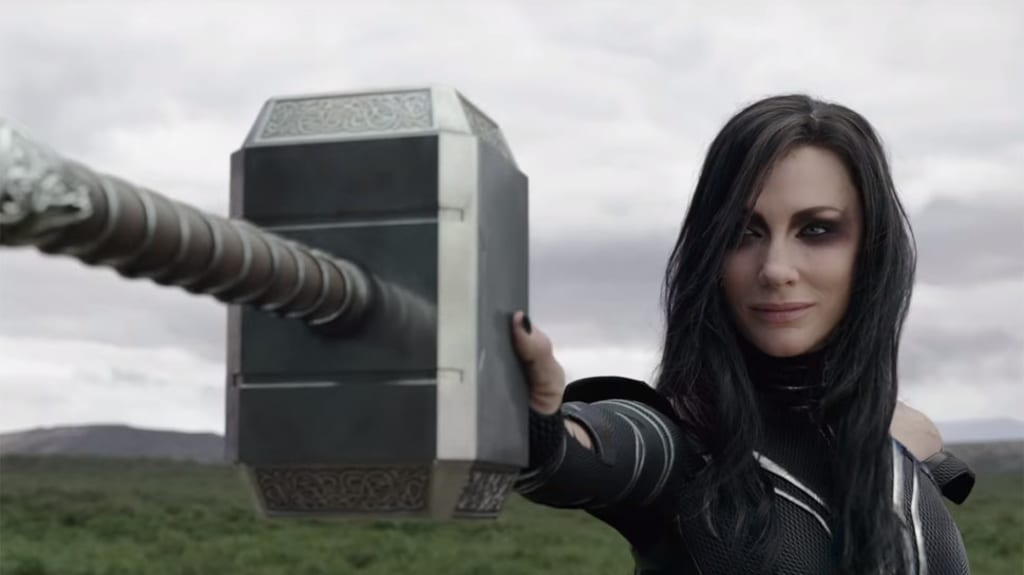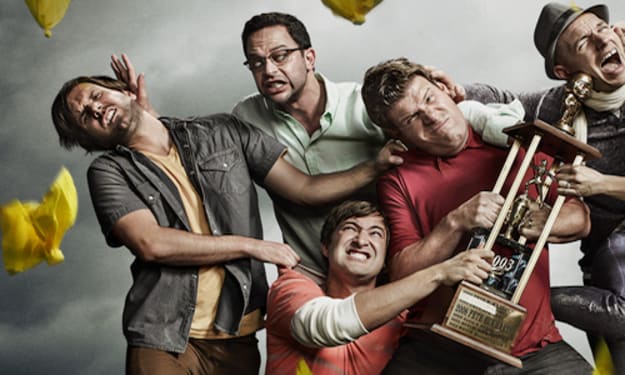Marvel Has a Problem Creating Villains in the MCU
'Thor: Ragnarok' Only Emphasizes the Problem

Now, let me be clear, Cate Blanchett's performance as Hela, the main antagonist of Ragnarok, wasn't bad — quite the opposite in fact, as she was able to deliver a villainous performance that we'd expect from an actress of her caliber. Yet, throughout the film she just feels flat — and that blame falls completely on Marvel's inability to introduce a villain that isn't disposable.
It's honestly a common criticism that follows Marvel Studio films, as each movie seemingly has the same plot: reluctant hero finds a super power/weapon/suit/etc, only to have it stolen by the villain and the hero must pick themselves up by the shoestrings and muster the self determination to save the world. Every Marvel film thus far has had the same formulaic plot, but since each hero is unique enough, most fans haven't necessarily noticed how flat the villains have seemed to be over the years.
- Tony Stark built an Iron Man suit, Obadiah Stain built a bigger suit
- Steve Rogers took a super serum formula, Red Skull developed his own and created Winter Soldier
- Scott Lang stole the Ant-Man suit, then Darren Cross created Yellowjacket
- Dr. Strange learned of mystic forces, but Kaecilius has darker, stronger magic
With each villain that we've seen over the years in the Marvel Cinematic Universe, they've all had one thing in common: they've been introduced as having the sole purpose of being defeated by the hero; and that is the underlying problem with the Marvel films because these villains are just the means in how the story is driven rather than a character that the story can't live without.
How Can Marvel Overcome This Problem - Or Does It Not Really Matter?

It always starts with what serves the story the most and what serves the hero the most. A big criticism of ours is that we focus on the heroes more than the villains, I think that’s probably true.
In 2008, two superhero movies came out. One focused on the villain, one focused on the hero, and we at Marvel looked at them, like ‘Yeah, we focus on the heroes. We don’t mind that. We like that.’
With Marvel's Avengers: Infinity War less than six months away, it brings to light the struggle that the studio has had in developing villains with longevity. Some will argue that Thanos has been an overarching villain through a large portion of the Cinematic Universe, but he has yet to actually come into direct conflict with any of the heroes we've seen thus far in the MCU so there's really no comparison until we see what happens in the upcoming cosmic war, even though Feige has stated that Thanos could be seen as the main character.
In a movie that has a lot of characters, you could almost go so far as to say [the villain Thanos] is the main character. That’s a bit of a departure from what we’ve done before, but that was appropriate for a movie called 'Infinity War'.
So, why has it been so difficult to develop any one of the iconic villains onscreen? Over the years we've been introduced to and witnessed the death of several iconic villains. Red Skull (Captain America: The First Avenger), Abomination (The Incredible Hulk), Ronan (Guardians of the Galaxy), Ego the Living Planet (Guardians of the Galaxy Vol. 2), Dormammu (Doctor Strange — okay, he doesn't die but Strange defeats him fairly effortlessly) and now it seems Hela has joined the ranks of vanquished icons with the blink of an eye.
Yet, comic book readers should recognize that villains like Ultron, Red Skull, Hela, and several others have been some of the most painstaking thorns for our heroes and have regularly returned to cause new levels of pain and destruction. But when compared to the Marvel films, these villains have ultimately minimal importance to the longevity of the series.
Where Did Hela's Story Go Wrong In 'Thor: Ragnarok'?

Hela's origin as the first child of Odin who set out on the conquest of the nine realms with Odin showed just how insatiable her bloodlust is, and how she craves conquest and power above all else. It's during this conquest that Odin begins to have a change of heart and exiles her as the goddess of death — then rewrites the history of his conquest as more of a series of diplomatic adventures. Hela's exile is tied intrinsically to Odin's own life force, so when he dies Hela is free to begin her conquest of Asgard — simply because it's what she wants to do. There is no greater purpose for her laying siege to Asgard other than to give Thor a villain to overcome.
Yet for the majority of the film, Hela spends her time spewing expositional speeches about her past and how she craves for all the realms to kneel before her gloriousness. All these speeches fall on empty throne rooms, nameless Asgardian soldiers and Karl Urban's Skurge while Thor and Loki are across the universe plowing through the main narrative. This disjointedness makes Hela feel as though she's merely onscreen as a reminder that ultimately Thor will return and save the known realms.
So again let me be perfectly clear: Thor: Ragnarok is the best Thor film in the franchise, and quite honestly one of funniest (if not the funniest) in the MCU. Ragnarok was a fantastic adventure and is definitely making strives toward bringing all the characters to the culmination in Avengers: Infinity War as well as learning to start setting up new villains for follow up films as they've done with Baron Mordo for a Doctor Strange sequel.
How do you feel about Hela's presence in Thor: Ragnarok, or any of the villains in the MCU?
About the Creator
Matthew Bailey
Husband. Father. Gamer. Cinema Lover. Mix it all together, and there I am. I love all things pop-culture and coffee; but coffee is the best.






Comments
There are no comments for this story
Be the first to respond and start the conversation.